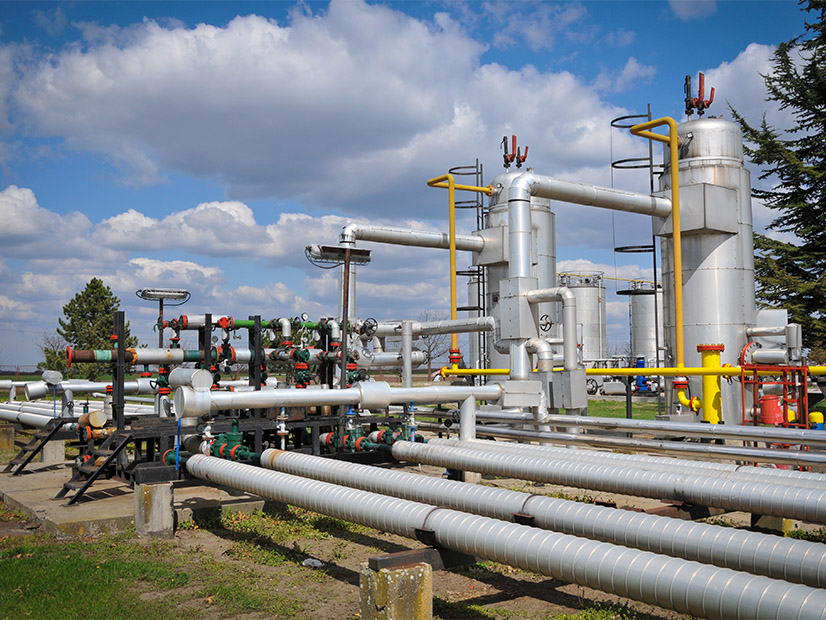The chairs of the North American Energy Standards Board’s Gas-Electric Harmonization Forum suggested establishing a natural gas reliability organization similar to NERC in their foreword to the board’s report on the forum issued last week, calling this step a “more significant, structural solution that … would accelerate the harmonization of the natural gas and electric power industries to the benefit of the country.”
The chairs proposed the organization as a means of addressing some “profoundly disturbing” differences of opinion between representatives of the two industries, revealed during the forum, that may require FERC’s direct intervention to prevent conflicts that could endanger the nation’s energy supply.
“Excuses can no longer substitute for sound planning and judgment,” wrote co-chairs Robert Gee, Susan Tierney and Pat Wood III, all members of NAESB’s advisory council. “If voluntary measures fall short owing to staunch opposition by some, it is time for the national regulator to consider more direct measures to ensure that both industries under its purview perform in tandem to ensure energy reliability and assurance for our country.”
NAESB initiated the forum last year at the request of then-FERC Chairman Richard Glick and NERC CEO Jim Robb, who said the board is “uniquely positioned” to organize the dialogue between the gas and electric industries called for in their respective organizations’ joint report on the February 2021 winter storm. (See NAESB Confirms Gas-electric Forum in the Works.)
During 14 meetings over the past 11 months, the forum’s participants — which included representatives of 370 companies in the wholesale and retail natural gas and electric markets — developed 20 recommendations that were offered to members of both industries for comment. While some recommendations met with broad support, others provoked “widely divergent opinions.”
These controversial measures included recommendation 1: that FERC direct NAESB to revise its standards to make data on gas pipeline availability and scheduling available to grid operators. This proposal drew the support of 85% of wholesale electric voters, but only 46% of those from the wholesale gas sector.
Also unpopular among the gas wholesalers was recommendation 7, which encouraged relevant state authorities to engage with producers, marketers and intrastate pipeline operators to ensure their operations are fully functioning ahead of extreme weather events that could cause high demand for both gas and electricity. Just 41% of wholesale gas respondents supported this proposal, as opposed to 87% of their electric counterparts.
Recommendation 15 — which encouraged state regulators to consider informational posting requirements for intrastate pipelines to improve transparency, similar to FERC’s reporting and posting requirements for interstate pipelines — met with approval from just 57.5% of wholesale gas respondents, versus 91% from the wholesale electric industry. Even NAESB’s standards efforts met with debate, with recommendation 4 — related to an effort by the organization to update its base contract for natural gas to encourage weatherization — drawing support from only 51% of voters in the wholesale gas quadrant, but 91% of the wholesale electric quadrant.
The forum’s chairs noted that not all of the recommendations were so controversial; several measures discussed in the report drew support from more than 80% of respondents in both industries. These included recommendations to align the electric and gas scheduling timelines, adopt multiday unit commitment processes, and have state public utility commissions encourage gas and electric demand response programs and voluntary conservation public service announcements.
But the writers remained dismayed at the tepid response generated by so many of the measures, which they considered not “to be so burdensome … that they would engender strong opposition.” They suggested a more fundamental change might be needed to implement the needed coordination ahead of future severe weather events.
“With [a gas reliability] organization in place, we believe the balanced solutions discussed in this report would find home at an institutional forum empowered to more timely address these and other related matters on an ongoing basis,” the chairs wrote. “Pending its creation, however, the … recommendations should be expeditiously addressed on an individual basis. … Although our work on this project is completed, resolution of these issues is only beginning.”




